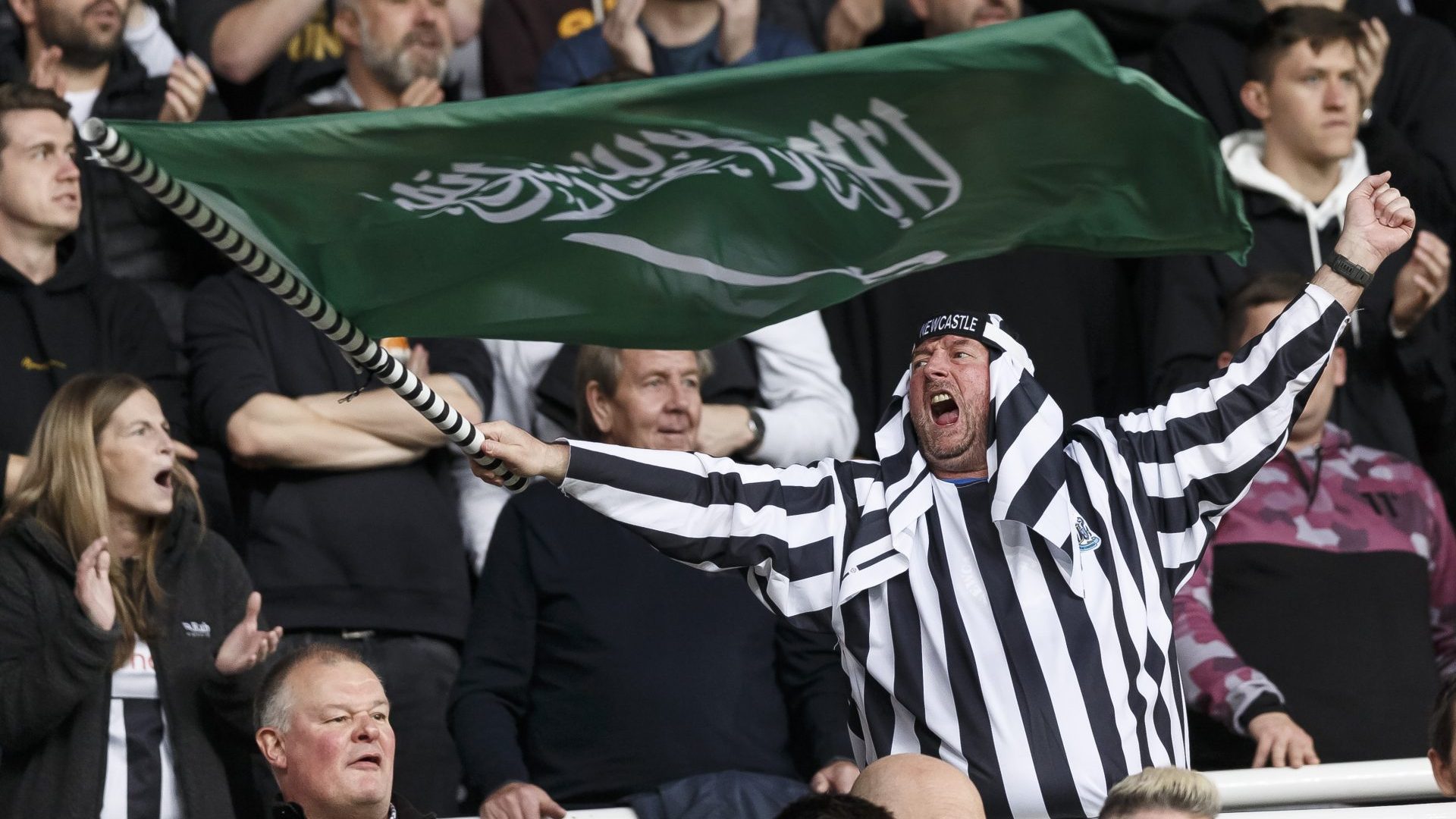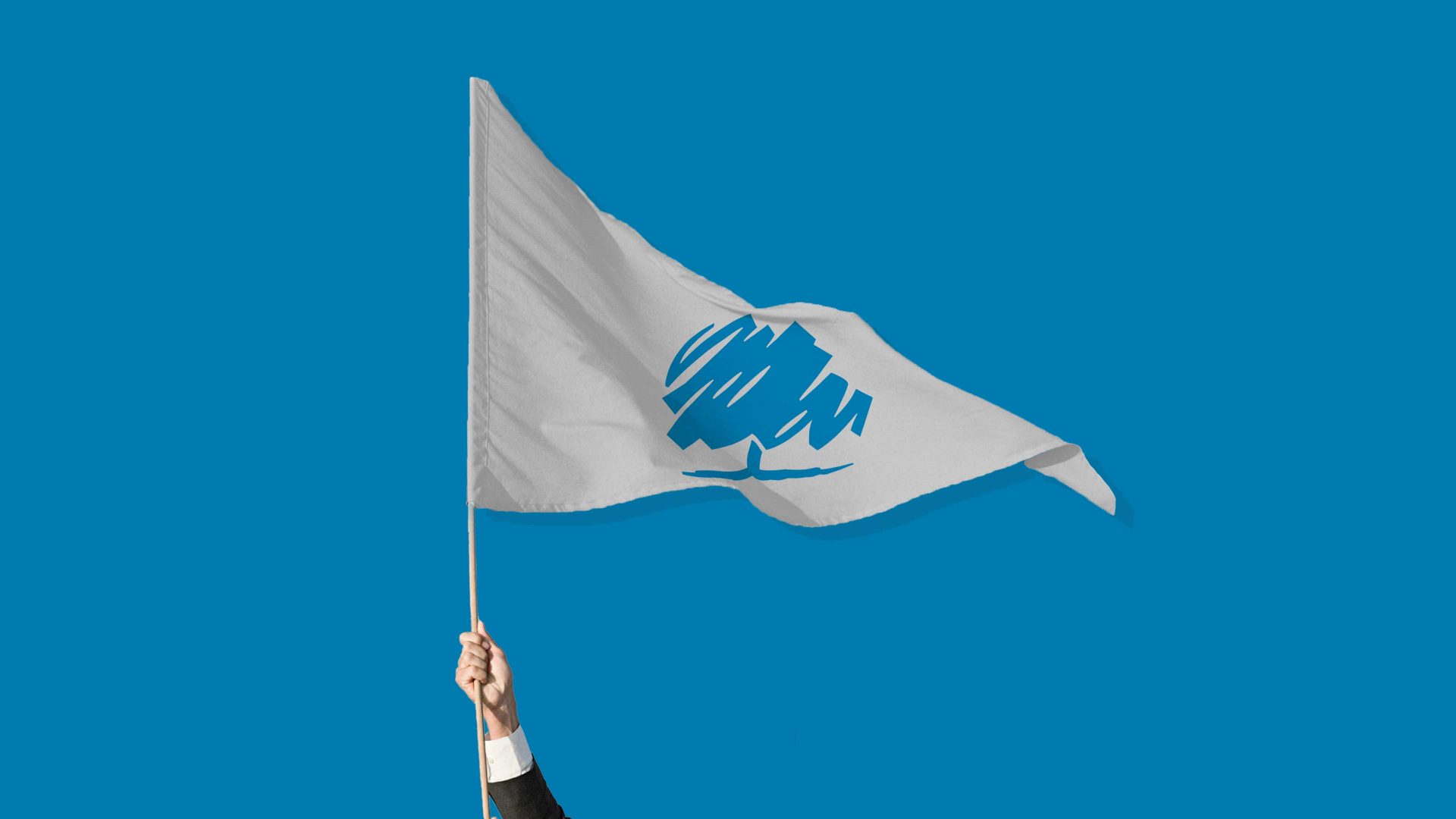Men had yet to walk on the moon when Newcastle United last won a major football trophy – in fact the Queen had only been on the throne for three years and Winston Churchill resigned as prime minister just a month before. Commercial television hadn’t started and Ruth Ellis had yet to be hanged. A lot of history has happened since a Newcastle captain last raised serious silver above his head.
But they finished fourth in the Premier League last season, qualifying for the Champions League and reached the final of the League Cup. With one bound, they joined the top clubs of the country and the continent – and they’re getting better. They won their opening match of the season 5-1 and narrowly lost their second to treble winners Man City.
All it takes is the right manager, Eddie Howe. And about £450m. That’s the approximate investment of the Saudi state-owned Public Investment Fund into the club, so far.
They haven’t set about filling St James’s Park stadium with Lionel Messi and Cristiano Ronaldo. Their recruitment has been stolid and sensible. Close-season acquisitions include Sandro Tonali and Harvey Barnes: damn good players but not traffic-stopping personalities. “The supporters will hopefully fall in love with both players,” said Howe.
The extent to which supporters have fallen in love with Saudi rulers and Saudi values can only be guessed at. The Saudis – they own 80% of the club, with RB Sport and Media and PCP Capital Partners – took over in autumn 2021, when Newcastle were bottom of the Premier League with six points from 12 games. They were safely in 11th place by the season’s end.
The takeover wasn’t straightforward. Saudi Arabia is known worldwide for two things; immense wealth from oil and a long succession of human rights abuses, of which the alleged mass murder of Ethiopian migrants is just the latest example. They were also involved in a broadcasting piracy operation that stole Premier League football. There was considerable opposition to their takeover of Newcastle.
It turned, apparently, on a single text: from Prince Mohammed bin Salman to Boris Johnson, then prime minister. The prince explained that opposition from the Premier League would affect UK-Saudi diplomatic relations. Gary Hoffman, chairman of the Premier League, told the clubs that there was a great deal of pressure from the government; he also said that this didn’t influence the decision.
The Premier League claims to have legally binding assurances that the Saudi state would have no control over the club. The chairman, Yasir Al-Rumayyan, is, as a court in the United States recently declared, “a sitting member of the Saudi government”. The shirt sponsors are Sela: a Saudi events company. In brief, Newcastle United is an expression of the Saudi state.
The Saudi Public Investment Fund has also bought golf. They financed a breakaway rival to the main tour called LIV Golf, a series of tournaments in which the winner gets US$4m every time. This was met with bitter opposition. Greg Norman spokesman for LIV Golf, was famously asked about the Saudi murder of the journalist Jamal Khashoggi. He explained: “Look, we all make mistakes.”
The golf establishment met LIV Golf with hostility followed by total capitulation. Something – you may be able to guess what – changed hearts and minds. The Saudis are now partners in the main tour.
The Saudis have also been building up their domestic football league, most notably signing Cristiano Ronaldo, a man of immense missionary zeal who is paid a reported £173m a year to play there. This season, other players joining Saudi clubs include Sadio Mané, Karim Benzema and N’Golo Kanté.
That’s how. But why?
Call it the Reverse Orwell Principle. In a famous essay of 1945, The Sporting Spirit, George Orwell described sport as “war minus the shooting” and claimed that “sport is an unfailing source of ill-will”. But he was wrong. Sport is a pleasure to untold millions and a consequent source of goodwill for those who provide it. Its action brings a hierarchy of pleasures in the form of partisanship, drama and excellence. It’s nice to be associated with such stuff, as every politician who ever sidled up to a gold medal winner will tell you.
Sport is fabulous, often beautiful and it also carries an aura of virtue. This goes back to the English public schools and their conviction that sport builds (rather than reveals) character: inculcating such virtues as sinking self into common cause and unquestioning obedience to authority. This vision of sport inspired Baron de Coubertin to found the modern Olympic Games to promote universal peace and the brotherhood of man (the sisterhood of women didn’t interest him).
It follows that any person or organisation or nation strongly associated with sport looks good, pulling off a win-win of benign impresario and moral authority. It’s a small step from there to use sport as a distraction from more pressing matters.
These days we call it sportswashing. The term is relatively recent, the practice ancient. Credit for its invention, in the modern sense of the term, can be given to Benito Mussolini, who celebrated the triumph of the Fascisti by holding the 1934 football World Cup in Italy.
It was a fairly crude version of sportswashing. Sport wasn’t used to cover up the shortcomings of fascism, it was used to glorify them. So it was essential that Italy won; it’s said that Mussolini personally selected the referees for Italy’s matches. The desire – the pressing need – for an Italian victory was the dominant mood of the tournament. Italy duly won, showing fascism to the world as it wished to be seen: bullying, thuggish and in desperate need of people to defeat.
Two years later the Olympic Games were held in Berlin: what Mussolini could do, Adolf Hitler intended to do better. He built a stadium that could seat 100,000 people and insisted that no Jewish or black competitors were involved. He had to backtrack on the black athletes, however.
His vision of the Games as an irrefragable demonstration of racial supremacy was compromised by Jesse Owens, the black American sprinter who won four gold medals. But at least part of the significance of this glorious achievement was retrospective: the Games were still a triumph for Hitler. (And Owens was not invited to the White House.)
Avery Brundage, of the United States Olympic Committee (chairman 1952-72) campaigned tirelessly in favour of the Berlin Games. He declared: “Politics has no place in sport”. That has been the motto of the sportswashing industry ever since.
Where does sportswashing begin? Sport has always been used to give a friendly appearance to something not altogether benign. Dodgy builders and questionable brewers traditionally funded British football clubs. Cigarette companies queued up to sponsor sporting events – Piccadilly Matchplay, John Player League, the ground-breaking Virginia Slims tennis tour – until the practice was banned in the 1990s. At the end of last season, eight Premier League clubs had shirts sponsored by gambling concerns; that will be banned from the 2026-7 season.
The apartheid years of South Africa are perhaps the most instructive to historians of sportswashing. The young observer today is entitled to ask: what took sport so bloody long? Apartheid began in 1948; South Africa weren’t banned from the Olympic Games until 1964. England – particularly significant as the mother country and the former colonial ruler – carried on with cricket tours until 1968.
And rugby union never stopped. There were tours of South Africa (not the other way round for fear of protests) from the British Lions in 1980, Ireland in 1981 and England in 1984. These tours were significant because they told South Africa and the world that some nations were prepared to accept apartheid.
England cricket only changed policy when South Africa refused to accept an England team that included Basil D’Oliveira, a former South African national of mixed race. Operating a flamboyantly unjust form of government was one thing, but picking the England team was quite another.
South Africa dealt with this blow with sportswashing. They set up a series of “rebel tours”: unofficial tours made by cricketers paid handsomely for pretending to represent their country. Perhaps their greatest achievement was in the comfort that it gave at home: a sweet illusion that life under apartheid was normal. “They’re doing a wonderful job in the townships,” their apologists said repeatedly on the BBC’s Test Match Special.
There were seven rebel tours in total, two involving English players claiming to represent England. Many individuals returned annually to play, to coach – and to maintain the illusion that the world loved apartheid. But the fakery was obvious and the global bans stung increasingly. In the end, sport, so long the comforter of apartheid, played a significant part in bringing it down: a process that began at last in 1990. This would be a badge of pride if so many people in sport hadn’t resented it so bitterly.
There’s a subtle difference between using sport to show how bloody marvellous you are and using sport to show how jolly nice you are. The massive East German system of state-sponsored doping wasn’t a scheme to make friends or cover up the shortcomings of East German communism. It was there to show how effective the place was.
It was the same with the military junta in charge of Argentina during the World Cup of 1978. The tournament was a gift for them: it had been granted under the democratically elected Juan Perón. The subsequent leader, his widow Isabel, was ousted in the coup of 1976. Fifa, the world governing body, went ahead anyway, for politics has no place in sport. Argentina won: had the tournament been played anywhere else they wouldn’t have got through the first round. The junta lasted until 1983.
The Moscow Olympics of 1980 can be regarded as a show of might rather than sportswashing, because they didn’t try to inspire affection, only fear and reluctant respect. But four years on, the Olympics apparently homeless, sinking and no longer relevant in a changing world, were taken on by Los Angeles and revitalised. Under Californian skies, the Olympic Movement embraced capitalism, with lavish sponsorship from McDonald’s and Coca-Cola.
Capitalism and America rescued the Games and gave them a new model for (economic) sustainability. This may not have been purpose-designed as an American sportswashing operation: but as a way of making corporate America look kind, noble, friendly, jolly, supremely capable and committed to doing its best for us all, it was unimprovable.
The 2008 Olympics in Beijing caught a time of rising liberalism and optimism in China, as I saw when I was there. China really was embracing change and was eager to show that to the rest of the world by way of sport. It didn’t last; the leaders, distrustful of both liberalisation and the outside world, lost their nerve.
Formula One motor racing was until recently at the forefront of sportswashing. They have made a speciality of holding races in places with poor human rights records – Azerbaijan, Bahrain, Qatar, Saudi and, historically, apartheid South Africa. But they’ve been eclipsed: the greatest sportswashing event in history (so far) was the 2022 World Cup. It was held in Qatar.
And it was clear from the start that, so far as both Qatar and Fifa were concerned, human rights was a PR issue, not a moral one. The place was totally unsuitable for the event, being small, with no footballing tradition and hardly any suitable stadiums. It was also too hot, so the tournament had to be held in late autumn, disrupting global football schedules. It cost Qatar an estimated US$220bn. The organisers went back on agreements about alcohol and gay visitors and abused migrant workers (one claim states that 6,500 died while the World Cup was being set up). The event was a triumph in calling the world’s attention to Qatar’s shortcomings.
But does it work? That’s the overwhelming question of sportswashing. Did sport make the world feel warmer about South Africa during the apartheid era? Do people now feel happier about Qatar after the World Cup? Or about Saudi because they own Newcastle and golf? Perhaps what matters is that it pleases the sportswashers’ vanity to believe so.
For the fact is that no one who is troubled by injustice will ever be convinced by sportswashing: if anything, sportswashing turns a spotlight on to abuses rather than covers them up… and anyway, people are always prepared to believe that foreign nations do bad things.
But no one wants to stop burning fossil fuel. Everyone wants that part of life to carry on as normal. Everyone wants to be reassured that it really is OK: wind power will save us and anyway, that climate stuff is greatly exaggerated. It is not, perhaps, coincidence that the nations most closely associated with fossil fuel are those at the sharp end of sportswashing.
We may not be prepared to buy into fundamentalist Islamic principles and Sharia law, but we’re all eager to believe that using lots and lots of oil couldn’t possibly do any real harm. This is where sportswashing really does work: convincing us to accept what we really want to believe.
Oil is fine. Sport tells us so: whispering to us in our dreams, dropping subtle hints every time we turn on the sports channels. Of course, it’s OK. Of course, we go along with it. To believe anything else would make us spoilsports.




